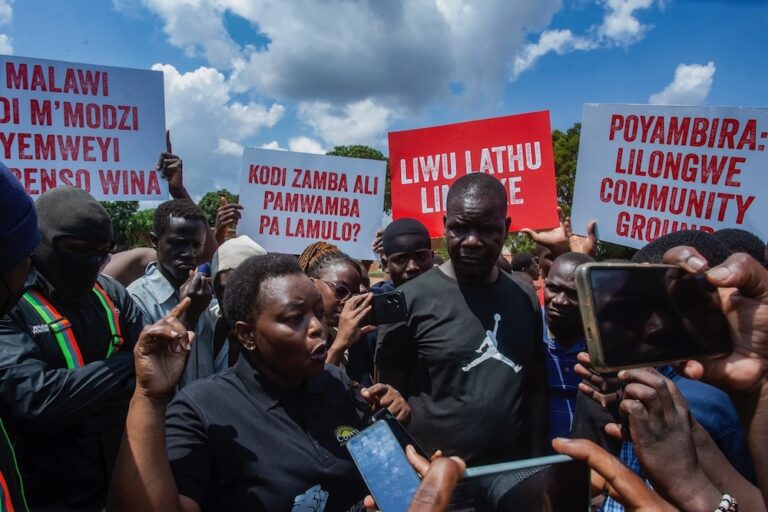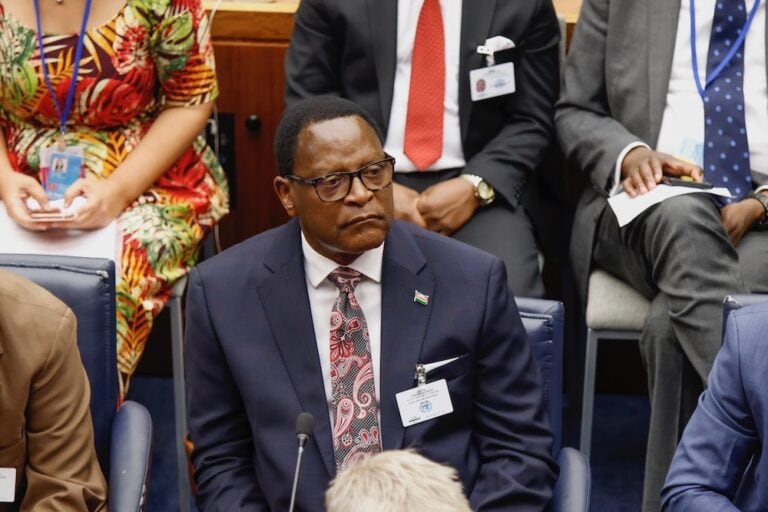(MISA/IFEX) – On 21 June 1999, police in Blantyre arrested two journalists from the weekly “Malawi News” for allegedly inciting the Malawi Army to take over the country. The police arrested Horace Somanje, editor of the “Malawi News”, and reporter, Mabvuto Banda, early on 21 June for writing a story in the 19 June edition […]
(MISA/IFEX) – On 21 June 1999, police in Blantyre arrested two journalists
from the weekly
“Malawi News” for allegedly inciting the Malawi Army to take over the
country.
The police arrested Horace Somanje, editor of the “Malawi News”, and
reporter, Mabvuto Banda, early on 21 June for writing a story in the 19 June
edition of the paper which quoted angry opposition supporters calling for
the army to take over the country because President Bakili Muluzi and his
United Democratic Front had rigged the 15 June elections.
The story in the paper was a report about an 18 June demonstration in front
of the Blantyre court house in support of a court action challenging the
results of the recent general election. The crowd reportedly chanted “take
over, take over” to the army and police when they arrived to break up the
demonstration.
Somanje and Banda were taken to the Blantyre police station where they were
charged with conduct “likely to cause public disorder.”
Rankin Nyekanyeka, editor of the “Daily Times”, the sister newspaper to the
“Malawi News”, told the PANA news agency that he went to the station to
apply for bail for the two arrested journalists, but the police refused
saying that the journalists’ crime was serious since it affected the
security of the nation.
Mackson Kazombo, assistant editor at the “Malawi News”, told MISA that after
the journalists gave statements to the police, they were reportedly told
that the police had no case against them and that they were “awaiting orders
from Sanjika Palace”, which is where the president lives.
The journalists were expected to appear in the High Court in Blantyre later
in the day on 22 June, at which time it was expected that a bail application
would be made.


